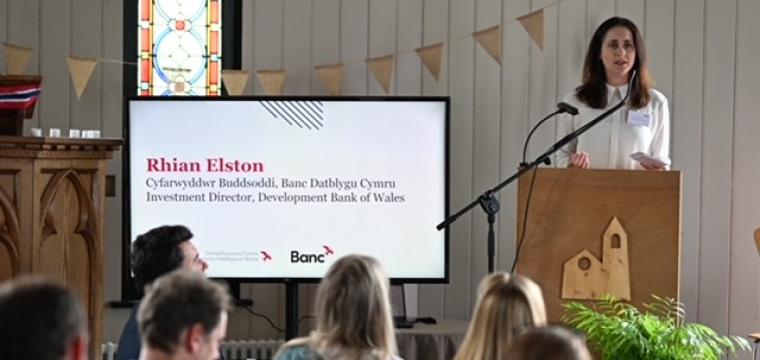Investment in skills and a new generation of productivity champions could be the key to transforming the Welsh economy, according to leading business owners, policymakers, and industry experts gathered at the second of a series of briefings hosted by the Federation of Small Businesses (FSB), Development Bank of Wales, and Economic Intelligence Wales.
Designed to address the critical challenges facing business, the event focused on how closing skills gaps can unlock higher productivity levels and drive growth. The discussion, which explored the opportunities for boosting SME performance, was chaired by John Hurst, newly appointed Policy Chair for FSB in Wales, with opening remarks from Rhian Elston, Wales Investment Director for the Development Bank of Wales.
“If we are serious about bridging the productivity gap, investing in skills must be a top priority,” said Rhian Elston. “Increasing productivity isn't just about improving efficiency—it's about empowering businesses with the tools, funding and talent to grow, innovate, and contribute to a thriving Welsh economy.”
A key highlight of the event was the panel discussion featuring Jane Wallace-Jones, Founder and CEO of Swansea-based Something Different Wholesale; Dr. Ali Wright, Founder and Owner of Needle Rock in Ceredigion and Professor Stephen Roper, Director of the Enterprise Research Centre.
In anticipation of two forthcoming reports by Economic Intelligence Wales, which will explore the role of 'productivity heroes' and productive investment in Wales, Professor Roper highlighted the urgent need for businesses to drive growth and employment through higher output. He also pointed to the critical role of mental health and well-being in fostering a productive workforce.
“Businesses that lead in productivity—those that innovate, upskill their workforce, and create jobs—hold the key to closing the productivity gap between Wales and the rest of the UK,” Professor Roper said. “We need to address not just the technical skills gap but also the broader issues that affect workers’ mental health, which directly impact performance.”
The conversation also delved into practical solutions for tackling the productivity challenge, including aligning educational qualifications with employer needs, expanding R&D activity, supporting infrastructure improvements, and ensuring better access to business support.
"At the Development Bank of Wales, we understand that productivity isn't a one-size-fits-all solution,” said Elston. “It's about providing businesses with the capital and support to invest in people, technology, and skills—so they can achieve sustainable, long-term growth. By working together across sectors—business, education, government, and finance—we can build a pipeline of talent and opportunity that drives Wales forward.”
Ben Cottam, Head of FSB Wales, echoed the sentiment: “The productivity issue in Wales is multifaceted. It’s not just about increasing output; it’s about unlocking the potential within our workforce. Every business, large or small, needs the right skills to succeed. We need to ensure that our people are equipped to tackle the challenges of the future—because only then will we see the growth, innovation, and job creation that will elevate our economy.”
Economic Intelligence Wales collates and analyses data to create independent, robust and reliable insight to help better understand and improve the Welsh economy. The latest quarterly report is available to read here.


